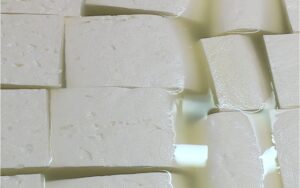Monsoons bring a spurt in gastrointestinal infections due to bacteria, viruses, and protozoa. To make matters worse, malaria and dengue increase due to mosquitoes breeding on stagnant water. It is estimated that a lakh of people die every year in India because of gastrointestinal infections during monsoons, say experts.
Dr Rakesh Kochhar, former head, Department of Gastroenterology, PGI, maintains waterborne infections occur due to drinking contaminated water or the fecal-oral route. Contamination of water supply in cities occurs due to overflowing sewage, burst pipes, and flooding.
Using water from public tanks or contaminated groundwater taken out through hand pumps is the cause in semi-urban or rural areas. In flooded areas, the situation is worse. Much of this contamination is through water coming into contact with animal and human waste. Just one gram of faeces can contain up to 100 billion microbes.
Food as a carrier of bacteria
During the rainy season, there is an increased risk of gastrointestinal (GI) infections from eating roadside cut fruit or items like gol-gappa, chaat, chatni and another source of infection is partially cooked food like vegetables or meat in Chinese food.
Drinking juice or shakes in glasses washed with dirty water or using a contaminated juicer/mixer can also spread infection. The culprits in all these are bacteria like Salmonella, E. coli, Campylobacter, and Vibrio cholera. All these are transmitted through water contaminated with sewage or faecal matter.
Dairy products like loose curd and cheese can also transfer Shiga toxin-producing E. coli which can cause dysentery. Stuff like mayonnaise can be a rich medium for bacteria growth of bacteria. All these bacteria and viruses like rotavirus cause damage to the intestinal lining resulting in increased secretion of fluids or reduced absorption. Most bacteria multiply easily in hot and humid climates and, therefore, diseases due to these are common in summers and monsoons.
Livestock, poultry, or fish can harbour pathogenic organisms and transmit the infection to humans. Livestock can carry Salmonella, E. coli, Campylobacter, and Leptospirosis, the first three can cause gastroenteritis. Poultry and fish can host Salmonella and Campylobacter and infect humans. Salmonella can be acquired from contaminated egg shells or even undercooked eggs.
A much more severe form of diarrhoea occurs due to the ingestion of preformed toxins in food contaminated with Staphylococcus aureus or Bacillus cereus. In a true sense, this illness is food poisoning whereas the other one is gastroenteritis. While food poisoning presents with diarrhoea and vomiting within a few hours, gastroenteritis takes longer than one or two days to manifest.
Red flags
If you see discoloured curd, cheese or meat, or any of the food items which are sour or smell stale, avoid them. If there are frequent power outages, even refrigerated and frozen food items may not remain edible.
Warning signs
Most Read
Drunk passenger harasses mother, daughter on 9-hour flight, $2 million lawsuit filed against airline: Report
Shabana Azmi recalls chaotic shoot with Rajesh Khanna, says Kader Khan would send ‘garam garam’ script pages from Chembur
Persistence of symptoms like fever, vomiting, and diarrhoea beyond two days or occurrence of bloody stools, drowsiness or fainting, and dehydration call for medical consultation and hospitalisation if needed. Children below one year of age and elderly people are at a greater risk of dehydration and other complications.
Treatment
The mainstay of treatment for most gastroenteritis is hydration with ORS. Anti-vomiting drugs are often needed. Specific treatment with antibiotics for bacterial or protozoal infection should be given after confirmation of the pathogen. One need not rush and give empirical antibiotics. It is best to wait for at least 48 hours. Dysenteric illness, however, requires prompt attention. Cholera is a notifiable disease and needs hospitalisation.
Prevention
Ensure clean drinking water. Use either filtered water or bottled water or boiled water. Avoid outside food, especially raw items like salads, cut fruit, juice, shakes, cheese and curd, and partially cooked vegetables or meat. While travelling, the safest items are pre-packed biscuits, chips, tetra pack juices, milk, or lassi. Needless to say, the maintenance of personal hygiene is of utmost importance. Hand hygiene practised during Covid-19 should be continued. There are vaccines available for typhoid fever and rotavirus, and can be used for people visiting flooded areas.






